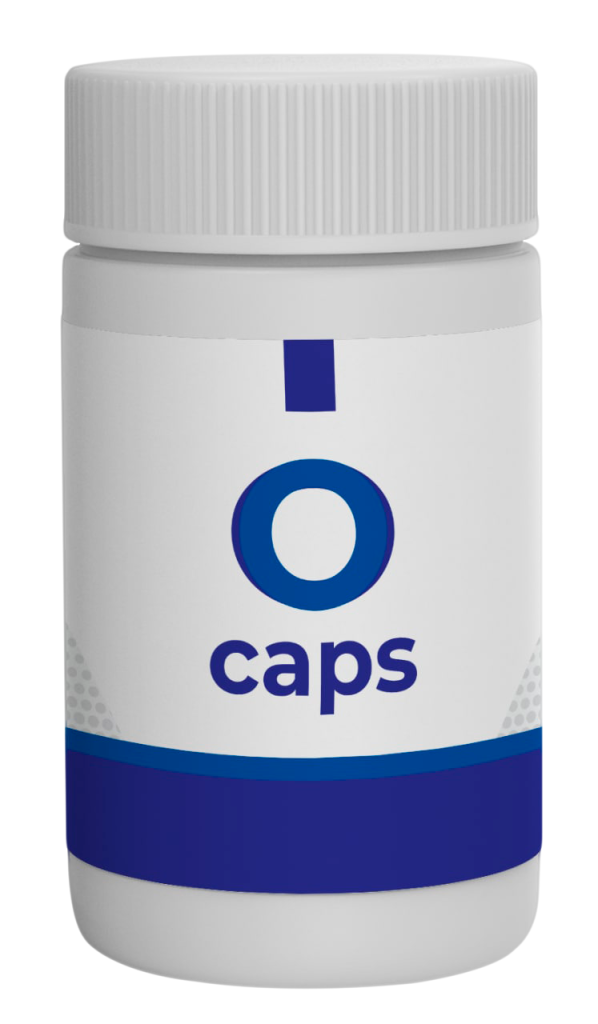Eating a balanced diet rich in eye-friendly nutrients is essential for maintaining sharp vision. However, when your diet falls short or your eyes are under added stress from screens, the best eye supplement for tired eyes and screen use can offer vital support.
A daily formula that includes beta-carotene, zinc, and vitamin C—along with nutrients like lutein, zeaxanthin, and vitamin E—can help fill nutritional gaps and protect against digital eye strain. These ingredients work together to nourish the retina, macula, and lens, where damage from blue light and oxidative stress is most common:
- Beta Carotene (Pro-Vitamin A): A powerful carotenoid that the body converts into vitamin A, critical for retinal function and night vision.
- Zinc: A key mineral found in high concentrations in the retina; it helps transport vitamin A from the liver to the eye and supports antioxidant enzyme function.
- Vitamin C: A potent antioxidant present in the cornea and aqueous humor, protecting delicate eye tissues from oxidative damage caused by screen exposure.
Together, these nutrients help support eye clarity, reduce fatigue, and slow age-related degeneration—making them essential components of the best eye supplement for tired eyes and screen use.
Excessive screen time leads to digital eye strain or “computer vision syndrome”, a growing problem for seniors and health-conscious adults. Nearly 60% of U.S. adults report symptoms of screen fatigue – blurred vision, dry eyes, headaches and eye irritation – from long hours at computers, phones or tablets.
To combat tired eyes, many turn to natural remedies and nutritional supplements. Three key nutrients – Beta Carotene, Zinc, and Vitamin C – form the backbone of proven eye-health formulas (for example, the AREDS formula). These antioxidants and cofactors protect ocular tissues from blue light damage and oxidative stress, nourish the retina, and maintain clear vision as we age.
This article explores how these ingredients work, other vitamins for eye strain, and practical tips (like the 20-20-20 rule) to relieve screen fatigue naturally.

Understanding Screen Fatigue and Eye Strain
Prolonged device use can trigger computer vision syndrome (CVS), a set of eye and vision problems caused by extended screen exposure. Symptoms include eye redness, blurred vision, dry or irritated eyes, headaches, and neck strain.
Blue light from screens and reduced blink rate are culprits, leading to increased oxidative stress on retinal cells and tear film instability. According to the Vision Council, over 60% of adults experience digital eye strain, with common complaints being blurred vision (28%), headaches (27%) and dry eyes (27%).
These stats underscore the need for solutions: in addition to ergonomic habits and eye exercises, targeted nutrition can ease symptoms.
- Symptoms of screen fatigue: eye tiredness, dryness, burning sensation, blurred vision, neck/shoulder pain.
- Causes: Blue light exposure, glare, poor lighting, uncorrected vision, lack of breaks.
- Digital eye strain (aka computer vision syndrome) is well-documented. Experts recommend frequent breaks, proper lighting, and nutrition to naturally relieve tired eyes.
Key Nutrients for best eye supplement for tired eyes and screen use”
Beta Carotene Benefits for Vision
Beta carotene is a provitamin A carotenoid with powerful antioxidant properties. In the body, it converts to vitamin A (retinol), which is necessary for the pigment rhodopsin in the retina that supports low-light vision. Consistent intake of beta carotene-rich foods or supplements can:
- Promote Night Vision: Vitamin A (from beta carotene) enables retina to detect light in dim conditions. The World Health Organization notes vitamin A supplementation prevents night blindness in at-risk populations.
- Support Retina and Cornea: Vitamin A maintains the cornea and conjunctiva, reducing dry eyes and infection risk.
Importantly, studies like AREDS found that an antioxidant formula containing beta carotene significantly reduced the risk of progression to advanced AMD among high-risk adults.
People with intermediate AMD who took 15 mg beta carotene plus vitamins C, E, and zinc saw about a 25% lower chance of vision loss and progression to advanced stages. One long-term follow-up confirmed these benefits in preventing moderate vision loss. In simple terms, higher beta carotene intake (either from carrots, sweet potatoes, spinach or supplements) helps protect the macula – the retina’s central area – from oxidative damage.
Food Sources: Carrots, sweet potatoes, pumpkins, spinach, kale and apricots are rich in beta carotene.
Beta carotene vs. smokers: Note that high-dose beta-carotene supplements were linked to lung cancer in smokers. Smokers and ex-smokers should choose formulations without beta carotene (AREDS2 formula substitutes lutein/zeaxanthin instead) or speak to a doctor.
Zinc for Eye Health
Zinc is one of the most abundant trace minerals in the eye, especially the retina and choroid. It is crucial for the retina’s visual cycle and antioxidant defense:
- Carriers of Vitamin A: Zinc helps mobilize vitamin A from the liver to the eye, where it is converted into retinal pigments. Without zinc, vitamin A cannot effectively reach the retina, impairing night vision.
- Antioxidant Defense: Zinc is a cofactor in enzymes like superoxide dismutase (SOD) that neutralize damaging free radicals in ocular tissues. Deficiency in zinc leads to increased oxidative stress and buildup of toxic byproducts (lipofuscin) in the retinal pigment epithelium.
- Pigment Formation: Zinc aids production of melanin in the eye’s retina – a natural pigment that filters UV and blue light. Higher retinal melanin shields against light-induced damage.
Clinical evidence supports zinc’s role: The AREDS trial used 80 mg zinc (as zinc oxide) and found it, with other antioxidants, slowed AMD progression. More recent studies suggest zinc supplements alone can reduce vision loss from AMD.
For example, a 2022 study found zinc supplementation significantly slowed progression of macular degeneration and loss of visual acuity. Another report notes zinc enhances vitamin A’s activity in reversing night blindness in pregnant women. In practice, adding zinc is especially valuable as we age or if dietary zinc is low.
Food Sources: Oysters (one of the richest), red meat, poultry, beans, nuts (pumpkin seeds), dairy and whole grains.
Recommended Intake: The AREDS study used high zinc doses (80 mg), but for general eye health most multivitamins provide 15-30 mg. Balance zinc with copper to avoid deficiency.
Vitamin C and Antioxidant Protection
Vitamin C (ascorbic acid) is a water-soluble antioxidant found in the lens, cornea and eye fluids at concentrations hundreds of times higher than blood levels. Its roles include:
- Free Radical Scavenger: The eye is highly exposed to light and oxygen, generating reactive oxygen species (ROS) that can damage proteins in the lens and retina. Vitamin C neutralizes these free radicals, protecting cells from oxidative injury.
- Collagen Production: Vitamin C is required for collagen synthesis, important for corneal clarity and retinal blood vessels. Deficiency can weaken blood vessel walls, leading to hemorrhages in severe scurvy cases.
- Protects Lens and Retina: By preventing oxidation of lens proteins, vitamin C helps delay cataract formation. A long-term study reported that people with high dietary vitamin C intake were 18% less likely to develop cataracts.
The Age-Related Eye Disease Study also included 500 mg vitamin C daily in its formula. While dietary studies show mixed results for vitamin C alone on AMD, the synergistic effect with other antioxidants is well-accepted. In digital eye strain, vitamin C supports ocular surface health (it is abundant in tears) and may alleviate dry eye symptoms by quenching oxidative stress.
Food Sources: Citrus fruits (oranges, lemons), strawberries, bell peppers, kiwi and guava.
Recommended Intake: Aim for at least 75–90 mg per day from diet (more when under oxidative stress). Higher doses (e.g., 500 mg) are common in eye health supplements.
Image: Beta-carotene (a provitamin A carotenoid) and other antioxidants help protect retinal cells from oxidative stress and blue light damage
.
Other Vitamins & Natural Remedies for Tired Eyes
Beyond beta carotene, zinc and vitamin C, other nutrients can aid eye strain and vision health:
– Lutein & Zeaxanthin: These macular carotenoids filter blue light and improve visual contrast. They accumulate in the macula and protect against AMD and glare. Studies show regular lutein/zeaxanthin intake reduces advanced AMD risk by ~40%.
– Vitamin E: A fat-soluble antioxidant that complements vitamin C. It protects cell membranes in the eye; higher intake is linked to lower cataract risk.
– Omega-3 Fatty Acids: Essential for tear film and ocular surface health. Supplementation (EPA/DHA) reduces symptoms of dry eye disease by reducing inflammation.
– Anthocyanins (bilberry, blue grape, black currant): Phytochemicals that may soothe eyestrain by improving circulation and reducing oxidative stress.
Lifestyle and Ergonomic Tips: In addition to supplements, practical measures greatly relieve tired eyes:
- 20-20-20 Rule: Every 20 minutes, look at something 20 feet away for 20 seconds to relax focusing muscles.
- Blink Often: Consciously blink to keep eyes moist. Using artificial tears or humidifiers helps if eyes feel dry.
- Proper Lighting: Reduce screen glare and use adjustable brightness. Position screens to avoid overhead glare.
- Ergonomics: Sit at arm’s length from screen; use good posture to prevent strain.
- Blue Light Filters: Glasses or screen settings that filter blue light may reduce melatonin disruption and eye irritation.
- Hydration & Rest: Drink water, get adequate sleep, and take regular breaks away from screens.
Collectively, these measures along with vitamin-rich diet and supplements form a comprehensive natural strategy for preventing and easing screen fatigue.
Choosing the Best Eye Supplement
When selecting a supplement for tired eyes, look for formulations with evidence-backed ingredients:
- Antioxidants (Vitamin C, E, Beta Carotene): These protect ocular tissues from free radical damage.
- Lutein/Zeaxanthin: Supports macular pigment.
- Zinc (with copper): For retinal health and vitamin A metabolism.
- Omega-3s: Often included for dry eyes.
A classic formulation modeled on the AREDS study contains vitamin C (500 mg), vitamin E, beta carotene (15 mg), zinc (80 mg) and copper. Many modern products replace beta carotene with lutein/zeaxanthin for safety in smokers. Always follow label instructions.
For example, O Caps provides a blend of these nutrients. Best Eye Supplement for Screen Fatigue
Note: Consult an eye doctor before starting any high-dose supplements, especially if you have existing conditions or take medications. Supplements support health but are adjuncts, not cures.
FAQ – Best Eye Supplements & Remedies
Q: Can supplements really relieve tired eyes?
A: Yes. Nutrients like beta carotene (vitamin A precursor), vitamin C, vitamin E and zinc have strong antioxidant roles in the eyes. Clinical studies (AREDS) show formulations with these vitamins significantly slow age-related vision loss. For screen-related eye strain, antioxidants help combat device-induced oxidative stress. Combined with ergonomic habits, these supplements can reduce eye fatigue.
Q: What are the top vitamins for eye strain?
A: Key vitamins include Vitamin A (as beta carotene), Vitamin C, Vitamin E, and B vitamins (like riboflavin B2). Lutein and zeaxanthin (carotenoid pigments) are also crucial. Together these support retinal health and tear film integrity. Many eye supplement brands combine these with zinc and omega-3s for dry eye relief.
Q: How does beta carotene benefit vision?
A: Beta carotene converts to vitamin A in the body, a vital component of rhodopsin in retinal cells. It supports low-light vision and a healthy cornea. Long-term studies (e.g. AREDS) found beta-carotene in supplement form helped slow progression of AMD and reduce vision loss in high-risk patients by ~25%. Higher blood levels of beta-carotene are linked to ~30% lower risk of advanced AMD.
Q: Is zinc good for eye health?
A: Absolutely. Zinc is highly concentrated in the retina and is necessary for vitamin A transport. It bolsters antioxidant defenses by activating enzymes that neutralize free radicals. Research indicates zinc supplementation can slow AMD progression and improve night vision in those with deficiency. It also helps produce melanin in the eyes, which protects against light damage.
Q: Are there natural remedies for tired eyes from screens?
A: Yes. Beyond supplements, simple remedies help: following the 20-20-20 rule, using lubricating eye drops, ensuring proper lighting, and adjusting display settings (lowering blue light) all reduce strain. Dietary changes like increasing omega-3 intake (fish oil) and staying hydrated also soothe eyes. Regular eye exams ensure underlying vision issues aren’t contributing to fatigue.
Q: How quickly do eye vitamins work?
A: Nutritional supplements usually act over weeks to months. Improvements in tear quality or slight vision changes may appear in a few weeks, but protective effects (e.g., slower AMD progression) show over longer periods (years). Consistency is key. Always maintain a healthy diet rich in fruits, vegetables and whole grains to complement any supplement.
Conclusion
In summary, the best eye supplement for tired eyes and screen use combines beta-carotene, zinc, and vitamin C (among other nutrients) to support ocular health naturally. These ingredients neutralize screen-induced oxidative damage, nourish the retina, strengthen eye structures, and help prevent long-term vision decline. For seniors and health-conscious readers, adding these vitamins (through diet or supplements) along with lifestyle habits (like regular breaks and proper lighting) offers a comprehensive defense against eye strain and fatigue. If you regularly suffer from screen fatigue, consider a quality eye health formula and talk to an eye care professional. Your eyes will thank you for the extra support!
See our other popular post: Matcha Suri Health Benhttps://curesboost.com/matcha-suri-health-benefits/efits! Packed with natural energy and antioxidants, it’s a must-read for anyone looking to boost wellness naturally. 🌿💪







